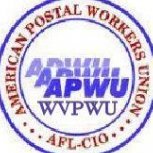- 0 replies
- 1,891 views
- Add Reply
Sixth COLA Increase Announced

In accordance with the 2021-2024 Collective Bargaining Agreement, career employees represented by the APWU will receive a $0.47 per hour cost-of-living adjustment (COLA), effective September 7, 2024.
“Our union-won COLAs prove invaluable to ourselves and our families. Few workers have any protection against rising prices, and today a full-time regular postal employee is making $6,300 more a year under our current contract thanks to our COLA,” said APWU President Mark Dimondstein. “We will continue to fight to maintain full COLA provisions during contract negotiations.”
The increase is the result of a rise in the Consumer Price Index (CPI-W). It will appear in paychecks dated September 27, 2024 (Pay Period 20-2024). The value of the COLA for full-time employees in each step and grade will increase by $977.00 annually, and the hourly rates for part-time employees will be adjusted accordingly.
The COLAs are in addition to general wage increases. This is the sixth and final cost-of-living increase under the 2021 contract. The first increase, effective in February 2022, amounted to $0.63 per hour or $1,310.00 annually. The second, effective in August 2022 was $1.18 per hour or $2,455.00 annually. The third, effective in March 2023, was $0.10 per hour, or $208.00 annually. The fourth, effective in August 2023, was 0.48 per hour, or $998.00 annually. The fifth, effective March 9, 2024, was 0.17 per hour, or $354.00 annually. The total cumulative COLAs received during the 2021-2024 National Agreement is $3.03 per hour, or $6,302.00 annually.
In light of the fact that Postal Support Employees (PSEs) do not receive cost-of-living increases, they have received several additional increases beyond the general wage increases for all employees in the APWU bargaining unit under the 2021 contract. COLAs are added to the base pay schedule, so PSEs will recoup these increases when they convert to career status.
Rising inflation underscores the importance of our negotiated Cost-of-Living Adjustments (COLAs) within our union contract, made possible by the strength of our membership. In our 2021-2024 contract, we fought to keep twice-a-year COLAs, our best protection against inflation. Postal workers are some of the few U.S. workers who receive COLA increases. Even in the postal world, we are the only postal union that has maintained full COLA in our union contract.

